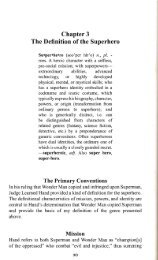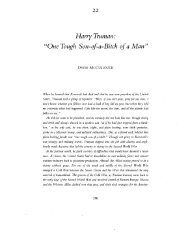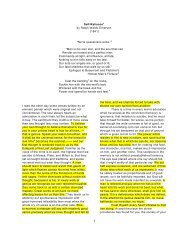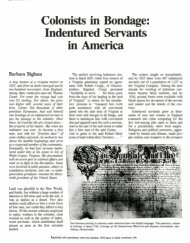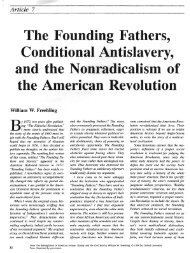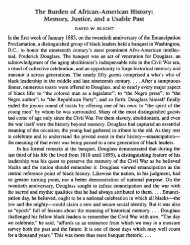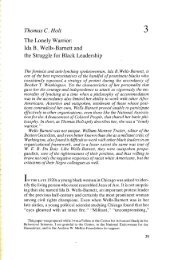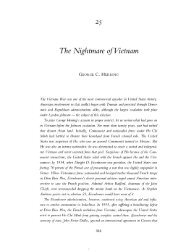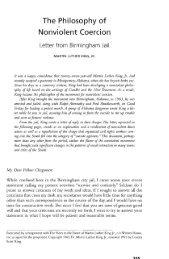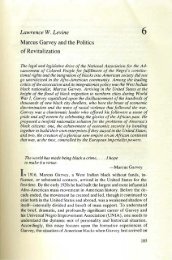Mary - Journeytohistory
Mary - Journeytohistory
Mary - Journeytohistory
Create successful ePaper yourself
Turn your PDF publications into a flip-book with our unique Google optimized e-Paper software.
Chapter 11Civil War229tionists supported the Republicans in 1860 principally because their platformwas antislavery, and they demanded that the party fulfill its pledge by settingthe slaves free. Lincoln had to move cautiously, however, for constitutional,political, and military reasons. His views on emancipation were well known.As early as 1849 he had introduced a bill in Congress for the gradual emancipationof slaves in the District of Columbia, and in the ensuing decade hestated his position on several occasions. For the abolitionists, gradual emancipationwas bad enough, but not even to take definite steps inlincoln's plnn forCIlUIIlCiputiOI1that direction was unforgivable.The whole matter caused Lincoln grave concern. As heevolved his plan of emancipation, he was viewed all the moreunfavorably because he felt it necessary to restrain enthusiastic officers whoemancipated slaves without his authorization. In 1861 Gen. John C. Fremontproclaimed military emancipation in Missouri, but Lincoln had to modify hisaction in keeping with the Confiscation Act. In 1862 Gen. David Hunter proclaimedthat slaves in Georgia, Florida, and South Carolina were to be foreverfree. When Lincoln learned of this order ten days after it was announced, heimmediately issued a proclamation nuHifying it and reminding slaveholdersthat they could still adopt his plan of compensated emancipation.President Lincoln was going ahead with this plan for solving the problem ofblacks in America. He hoped to achieve emancipation by compensating ownersfor their human property, and then he looked forward to colonizing them insome other part of the world. In the fall of 1861 he attempted an experimentwith compensated emancipation in Delaware. He urged his friends there to proposeit to the Delaware legislature. He went so far as to write a draft of the bill,which provided for gradual emancipation, and then he composed another,which provided that the federal government would share the expenses of compensatingowners for their slaves. Although these bills were much discussed,there was too much opposition to introduce them.More definite steps in the direction of emancipation were taken in thespring of 1862. In a special message to Congress, President Lincoln recommendedthat a resolution be passed announcing that the United States governmentwould cooperate with any state adopting a plan of gradual emancipationtogether with satisfactory compensation of the owners. He urged the congressionaldelegations from Delaware, <strong>Mary</strong>land, West Virginia, Kentucky, andMissouri to support his policy. They opposed it, however, because their constituentswere unwilling to give up their slaves. A joint resolution introducedby Roscoe Conkling nevertheless passed both houses and was approved bythe president on April 10~ 1862. The abolitionists were furious; they feltthat Southern slaveholders should not be paid to surrender property they didnot rightfully possess. Wendell Phillips, speaking in Cincinnati before a crowdhostile to his views, criticized the administration, declaring that the right handof Southern aristocracy was slavery and the left hand the ignorant white man.All over the North abolitionists denounced Lincoln's plan of compensatedemancipation.



